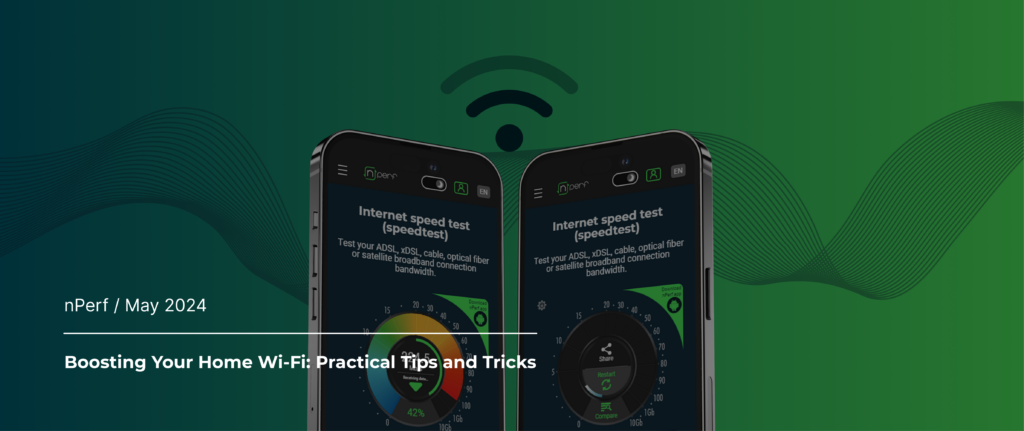
In today’s interconnected world, a strong Wi-Fi connection is essential for smooth online experiences. Yet, many homes struggle with slow or unreliable Wi-Fi. In this article, we explore practical ways users can enhance Wi-Fi performance at home. From optimizing router placement to introducing advanced mesh systems, let’s uncover the solutions to ensure enjoy seamless connectivity.
Assessing Your Wi-Fi Strength: A Guide for End-Users
In an era where our daily lives rely heavily on seamless internet connectivity, ensuring the reliability and speed of our Wi-Fi networks has become paramount. As an end-user, understanding the performance of your Wi-Fi connection is essential for optimizing your online experience, whether it be for streaming, gaming, remote work, or simple web browsing.
At nPerf, we recognize the importance of empowering users to take control of their internet experience. With our suite of free tools available on mobile apps, desktop applications, and our website, users can easily conduct Wi-Fi speed tests to assess the strength of their connection. Testing in various rooms throughout your home provides valuable insights into Wi-Fi coverage and performance, enabling you to make informed decisions about optimizing your network setup.
Concrete tips to improve Wi-Fi signal at home
When it comes to enhancing the performance of your home Wi-Fi network, implementing concrete tips can make a significant difference.
- Start by optimizing the placement of your router, ensuring it’s positioned in a central location away from obstructions and interference sources.
- Consider upgrading to a dual-band or tri-band router to leverage less congested frequency bands for improved speed and reliability. ISPs can provide dual-band or tri-band routers that operate on both 2.4 GHz and 5 GHz frequencies. This allows devices to connect to less congested bands for better performance.
- Wi-Fi extenders or mesh systems can help extend coverage throughout your home. ISPs can offer mesh Wi-Fi systems that use multiple access points to create a single, seamless Wi-Fi network throughout the home. This can eliminate dead zones and provide better coverage in large homes. It’s crucial to ensure that the hardware is recent, ideally supporting the latest Wi-Fi 6 standard. Wi-Fi 6 offers significant advancements in speed, capacity, and performance, making it well-suited for modern households with multiple connected devices.
- Furthermore, regularly updating your router’s firmware can further enhance Wi-Fi performance.
By implementing these practical tips, you can unlock the full potential of your home Wi-Fi network and enjoy a seamless online experience.






